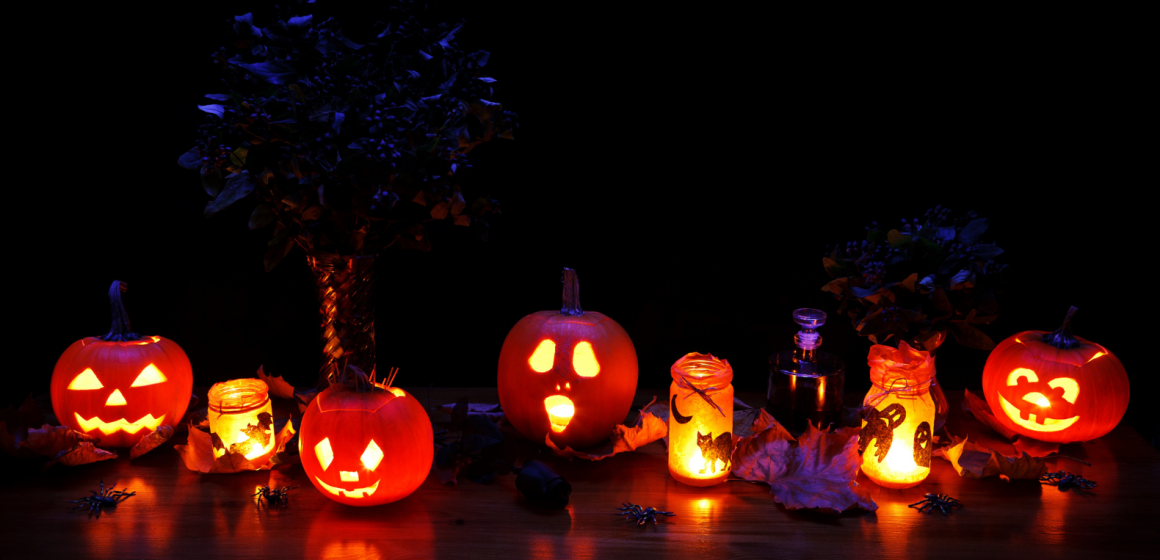The title of this paper presumably catches your attention with the question of “how Halloween and law are interrelated”. As expounding the well-known statement “Law is all around us”, Halloween celebrations can intersect with legal matters. At first sight, it seems very intricate to comprehend the legal implications of Halloween, this paper is intended to make such a relationship much clearer and more visible. Prior to this, this paper will focus on the historical and legal backgrounds of Halloween.
Historical Background of Halloween
All Hallow’s Eve, or Halloween as it is commonly referred to, is a global celebration on October 31 every year. The roots of the Halloween holiday date back to the ancient Celtic ritual of Samhain. As a pagan religious celebration, it celebrated the changing of the seasons from light to dark (summer to winter). As well, the Celts celebrated Samhain on the night of October 31 when they believed that the ghosts of the dead returned to earth. Thus, they lit the bonfire and wore spooky costumes in order to ward off the ghosts. In the 8th century, Pope Gregory III determined November 1 as All Saints Day to honor saints. Furtherance to this, the evening before All Saints Day was known as All Hallows Eve, and later Halloween. Whereas Halloween originated In Europe, this celebration became the holiday recognized today after bringing to America and enriched with several traditions.
Legal Background of Halloween
In turn, the Magna Carta, which is a royal charter of rights adopted in England in 1215, determined the right to trick or treat on Pagan’s Day. Furthermore, the proper meaning of “Pagan’s Day” was unveiled in the case Peter Pagan v. Johnny Englishman. The High Court found that October 31st was “Pagan’s Day” in which God had given Pagans the right to treat or trick. As well, a clause “ensuring the right to trick or treat not be infringed” was proposed at the Constitutional Convention of the USA for the American Convention (nevertheless, this proposal was ultimately quashed).
Legal Implications of Halloween
Even though Halloween is one of the most well-known holidays celebrated in the world, its boundaries cannot be mapped beyond legal matters. The traditions of Halloween, such as “treat or trick”, wearing or designing spooky costumes, preparing special cookies or dishes and etc., can cause several legal issues, more interesting ones of which will be analyzed by this paper in the following.
Firstly, this paper touches on the interrelationship between criminal law and Halloween. Namely, the level of criminal offenses augments during the period of Halloween holidays. The reason for this augmentation mainly lies in the following conditions:
- the presence of so many young children (often unsupervised) around, which augments the risk of the commission of a range of crimes against them);
- special “festive” mood and much alcohol consumption, which raises the overall criminality rates
Furthermore, Halloween traditions, specifically wearing spooky costumes, can ensure a fertile situation for the offenders to conceal their identity and commit a crime. To this end, the issue of forbidding the participants of Halloween festivities to conceal their identity by wearing a mask generates state-level debate in the USA. For example, North Carolina State Law, section 14.12.7 prescribes that it is illegal for anyone over the age of 16 to wear a mask so as to conceal his/her identity in public places. Even though this Law determines the exemption for wearing a mask during the traditional holidays, it is debatable whether this exemption is applied to Halloween celebrations or not.
Secondly, Halloween traditions can cause ramifications in the domain of tort law. Specifically, the primary Halloween tradition – “trick or treat” – can result in incidences, such as property damage, nuisance, personal injury and etc. During tricking or treating, there is a risk that the landowner’s premises can be damaged by the children’s actions or the latter’s actions can cause a nuisance for the landowner. The issue which confounds the situation is determining who is liable for these infringements. To put it in other words, if the damage is inflicted by children, it is implausible to hold them liable, since they are less likely to have the assets to pursue the damages. Thus, instead of the children themselves, it is realistic to hold their parents liable. However, this requires proving the negligence on the part of the parents and the existence of their obligation to a duty of care.
Besides that, Halloween can contribute to the development of tort law. In this regard, this paper draws your attention to Bouton v Allstate Ins. Co. case. The Louisiana court pointed out that
“…on any other evening, presenting a frightening or threatening visage might be a violation of a general duty not to scare others. But on Halloween at trick-or-treat time, that duty is modified. Our society encourages children to transform themselves into witches, demons, and ghosts, and play a game of threatening neighbors into giving them candy…”
By doing so, the Court took a position that the duty not to scare is applied differently on Halloween as opposed to on any other evening.
The Halloween holiday has also intersected with intellectual property rights. To illustrate more, costume designs can arise copyright issue when the such design is used by others without authorization. In addition, a special recipe for Halloween cookies can be considered a trade secret. Regarding this, the US District Court for the Eastern District of Pennsylvania found in Sweetzel, Inc. v. Hawk Hill Cookies, Inc. that the company’s cookie recipes and customer lists constituted trade secrets, and hold Sweetzel’s competitor liable.
Accordingly, the above-mentioned analysis indicates that people should be cautious and celebrate the Halloween holiday in such a way as to act within the boundaries of legal issues. Therefore, let’s try to make your October 31st not only Halloween but also “Hallaween”.
Bibliography
- Leonila Guglya, The BSL Blog, “The Legal Aspects of Halloween”, posted on 12 November 2013, available at: https://bslprofessors.wordpress.com/2013/11/12/the-legal-aspects-of-halloween/ (accessed on 25 October 2022)
- Das Law blog, “How far you can legally go to stop someone from playing a trick on you this Halloween”, posted on 27 October 2022, available at: https://www.daslaw.co.uk/blog/how-halloween-can-turn-into-a-legal-fright-night (accessed on 28 October 2022)
- Max Fiest, The Columbia Journal of Law & the Arts, “We Swear This Is The Legal History of Halloween”, posted on 2 August 2019, available at: https://journals.library.columbia.edu/index.php/lawandarts/announcement/view/104 (accessed on 27 October 2022)
- Daniel J. Corbett, Mondaq, “United States: Halloween Edition: Cookie Maker Gets Early Treat When Court Protects Halloween Cookie Recipe As A Trade Secret”, posted on 6 November 2013, available at: https://www.mondaq.com/unitedstates/trade-secrets/273466/halloween-edition-cookie-maker-gets-early-treat-when-court-protects-halloween-cookie-recipe-as-a-trade-secret (accessed on 27 October 2022)
- Dummit Fradin, “Halloween Masks and the Law. Is It Illegal to Wear a Mask on Halloween?”, available at: https://www.dummitfradin.com/halloween-masks-and-the-law/ (accessed on 28 October 2022)
- Amanda Pagan, New York Public Library, “A Brief History of Halloween“, posted on 26 October 2018, available at: https://www.nypl.org/blog/2018/10/26/brief-history-halloween (accessed on 28 October 2022)
- JD Supra, “HALLOWEEN EDITION: Cookie Maker Gets Early Treat When Court Protects Halloween Cookie Recipe As A Trade Secret”, posted on 31 October 2013, available at: https://www.jdsupra.com/legalnews/halloween-edition-cookie-maker-gets-ear-10517/ (accessed on 29 October 2022)
- The University of Law, “Halloween Laws”, available at: https://www.law.ac.uk/resources/blog/halloween-laws/ (accessed on 29 October 2022)
- Blair Donovan and Marissa Gold, CountryLiving, “What’s the Origin of Halloween and Why Do We Celebrate It on October 31?”, available at: https://www.countryliving.com/entertaining/a40250/heres-why-we-really-celebrate-halloween/ (accessed on 29 October 2022).
The articles on this blog are not, nor are they intended to be, legal advice. You should consult a lawyer for individual advice or assessment regarding your own situation. The article only reflects the views of the author.


